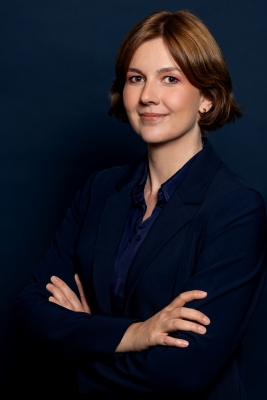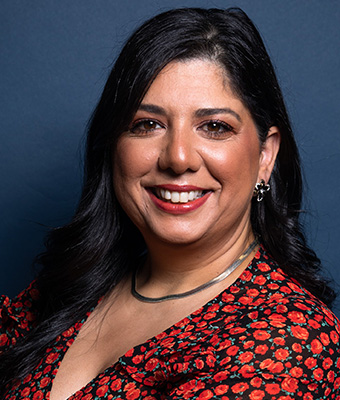CEMS MASTER OF MANAGEMENT SPECIALISING IN INTERNATIONAL MANAGEMENT
Gain the necessary skills to work anywhere in the world
IMPROVE YOUR CAREER PROSPECTS
The CEMS MIM is a powerful combination of theory and business expertise that will help you kickstart your career.
The UCT GSB Master of Management Specialising in International Management (MIM) is offered in association with CEMS - a global alliance of the world’s finest students, schools, alumni, corporate and social partners. The UCT GSB CEMS MIM is a full time study programme offering a dual qualification, with international accreditation from UCT GSB as well as CEMS
This one-year master’s programme includes:
- international management courses
- business skills seminars
- an international internship and business immersion project
- with CEMS corporate partners
- a credit-bearing study term at one of the CEMS partner universities - which include top global business schools, in 34 countries
At the conclusion of their studies, MIM students will be awarded both the Master in International Management qualification issued by CEMS as well as the Master of Management specialising in International Management degree issued by the University of Cape Town.
If you would like more information on fees for this programme, click here.
uct gsb CEMS MIM Overview
The UCT GSB CEMS MIM takes place over an 18 month period. Explore the programme format and delivery. Learn more about which attributes and qualifications are required for the UCT GSB CEMS MIM TThe UCT GSB CEMS MIM comprises core courses, electives, an internship and a dissertation.
BECOME AN INTERNATIONAL BUSINESS MANAGEMENT PROFESSIONAL
Successful candidates will be awarded both the Master in International Management qualification issued by CEMS and the Master of Management degree Specialising in International Management issued by the University of Cape Town.
ABOUT THE CEMS MIM
96%
of graduates are employed or continuing their studies92%
have worked outside of their home country75%
work for multinational organisations16500+
members of the global alumni networkFREQUENTLY ASKED QUESTIONS
A 2019 CEMS graduate survey showed that:
96% of graduates are employed or continuing their studies
92% have worked in two or more countries 75% work for multinational companies
Yes. A place on the programme must be confirmed before a study permit application can be considered by the South African Department of Home Affairs. International applicants should be aware that obtaining study permits from the South African authorities can take approximately two months.
The UCT GSB's Breakwater Campus is situated in the heart of Cape Town's most popular tourist attraction, the Victoria and Alfred Waterfront. Centrally located and easily accessed, the UCT GSB is just 1.5km away from the central business district and 20 minutes from Cape Town International Airport.
As an added benefit to studying at the UCT GSB, you'll be situated in one of the most beautiful cities in the world. Click here to see what Cape town has to offer.
For the portion of the degree that you attend at the UCT GSB, students need to arrange their own accommodation. Student accommodation is offered in the Protea Breakwater Lodge, on the UCT GSB campus, at special rates on either a monthly or half-yearly basis.
Learn with the best
Our Internationally acclaimed researchers and teachers are all dedicated and gifted individuals who contribute directly to UCT GSB's reputation of excellence.

Programme Director
Dr Annika Surmeier is a Senior Lecturer and the Academic Director of the CEMS Master of Management Specialising in International Management (MIM) programme at the UCT GSB.
Programme Manager
Gadija Allison is the CEMS Programme Manager & Corporate Relations Manager at UCT GSB.

Admissions
Derek is responsible for the UCT GSB’s recruitment strategy for its academic programmes and works closely with various stakeholders.
TAKE THE FIRST STEP TODAY
Acquire new competencies and move your career to the next level!
UPCOMING EVENTS
CEMS Master of Management Specialising in International Management (MIM) Info Session
Join us for an information session webinar about the UCT GSB's Master of Management Specialising in International Management (MIM) offered in association with CEMS - a global alliance of the world’s finest students, schools, alumni, corporate and social partners.
Learn more RSVPIDEAS EXCHANGE

Five GSB students awarded prestigious CEMS Master in International Management
Five graduates from the UCT GSB have received the prestigious CEMS Master in International Management (MIM) qualification. Four of these graduates attended the global CEMS MIM graduation ceremony in Bergen, Norway, joining 600 peers from 33 leading global business schools. This milestone highlights UCT GSB's contribution to producing globally competent leaders, exemplifying the spirit of collaboration and excellence within the CEMS Alliance.
Read Article
Three lessons for employers from the CEMS The Future-Forward Workforce report
The CEMS Master in International Management programme is a launchpad to an international career. But these careers are evolving as new generations of graduates with new attitudes and ideas are entering the workforce. We take a look at the findings of a recent CEMS workplace research report, and what it means to future leaders and their employers.
Read Article
From Botswana to South Korea: Neelo Gopolang's CEMS MIM journey
Neelo Gopolang shares her experience of embarking on the CEMS Master in International Management at the UCT Graduate School of business – from navigating global business challenges through cultural understanding to highlighting the value of learning from successful entrepreneurs and leaders in other countries.
Read Article
How I launched an international career with CEMS MiM
UCT Graduate School of Business alum Ntando Mdladla tells us about the School’s award-winning CEMS Master in Management specialising in International Management programme, which is designed to launch ambitious young graduates into international internships at blue-chip multinationals all over the world. The UCT GSB is the only business school in Sub-Saharan Africa to offer this course.
Read Article
A new model of collective business leadership and a shift to generational strategic thinking are essential to avert environmental catastrophe
New CEMS report sets out recommendations for globally responsible business leaders, educators and young professionals
Read Article
Top tips to ensure employees can still learn from one another in a hybrid world
Two-thirds of professionals fear that a hybrid workplace will damage their ability to learn from colleagues – global survey
Read Article
Healthy workplaces are foundational for a healthy society
Business has a critical role to play in fostering diversity and inclusion and building healthier workplaces and societies in the wake of the crisis.
Read Article